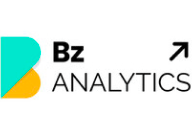Online Data Science Course in Telugu
Advance your Career in Illinois Certified Data Science & Machine Learning with Entri Elevate in Telugu. Equip learners with in-demand skills, Real projects, Trending Tools & Technologies. Enroll now!




Overview Of Data Science Course in Telugu
Begin your data-driven career with Entri Elevate comprehensive Data Science & Machine Learning course. Master Python, statistics, and machine learning algorithms through interactive learning, real-world projects, and expert guidance. This flexible, on-demand program equips you with the skills and knowledge to succeed in the booming field of data science, regardless of your experience level. Upon completion, students will have gained a solid understanding of the skills and talents needed to build and deploy machine-learning models for various applications.

Inclusive & Immersive Hybrid Training Sessions

Industry Expert Sessions

80+ Live & Recorded Sessions

Soft Skill Sessions
_7003.webp)
Industry Networking

Placement Training

Illinois Tech Certification
Skills Covered
These are the most important skills that can help you become more visible in the machine learning and data science areas.
Tools Covered
Illuminate the path to insights! Unlock the power of data science and machine learning with these necessary tools!
_8081.webp)









Data Science Job Roles
High-Paying Jobs After a Data Science Course
Data Scientist
Data scientists decide what inquiries their team ought to be making. They work out how to use data to answer such questions, frequently creating prediction models and algorithms to speculate and project results.
Data engineer
In order to enable other data scientists and mathematicians to identify trends and patterns for interpretation, data engineers create systems that can automatically gather, store, manage, and analyze data sets. The technologies simplify data so that a business or client may benefit from it.
Data architect
plans for data management and organization systems are made by data architects. A data architect creates technologies that data scientists use to identify trends and patterns after outlining a company's approach to resolving a specific problem.
Machine learning engineer
The framework enabling artificial intelligence (AI) systems to interface with massive data sets is designed by machine learning engineers. These engineers collaborate with programmers and data scientists to develop AI applications that can filter data, find patterns in it, and do computations using algorithms. AI is used by the programs to automate decisions-making and life-easing operations for users.
Business Intelligence Analyst
Analysts of business intelligence are in charge of examining data to find patterns and trends that can help businesses make wise decisions. To gather information from several data sources and display it in a way that stakeholders can understand, they make use of a range of data analytics technologies. Strong analytical skills, business knowledge, and outstanding communication ability are required for this role.
Curriculum
The curriculum is designed to help you learn the skills required to become a successful professional.
- Introduction to Programming
- What is programming?
- Compiler,Interpreter
- Source Code
- Machine code
- Algorithms
- Editors
- Introduction to Data Science
- What is Data Science?
- Job Roles
- Terminologies
- Data Science Applications and its work flows
- Language Introduction and Installation
- Python history
- Python features
- python and pycharm installation.
- Python Basics
- Print command
- Comments,escape sequences
- Variables
- Data types
- User interactive command, operators
- Conditional and looping statements
- Selection statements
- Control statements
- Break and continue statements
- Nested loops
- Data Structures in python
Introduction to user defined data structures and non-primitive data structures:list,
dictionaries, set,tuples, strings and sequences,accessing and modifying elements in data
structures,comprehension: list, set and dictionary.
- Functions in Python
Defining functions, passing arguments to functions, different types of arguments, returning
values from functions, local and global namespace, lambda function, recursion, filter,
map,reduce, eval. Generators and decorators.
- File Handling and Exception Handling
File processing, Reading and writing files using ‘with’ statements. What is an Exception?,
raising and catching exceptions and handling errors gracefully using try-catch-finally.
- Object Oriented Programming
Introduction to OOPs, Classes and objects, inheritance and polymorphism, encapsulation
and abstraction.
- Modules in Python
Introduction to modules, importing modules, creating and using modules.
- Regular Expressions
Defining regular expressions, using regular expressions with python.
10.Pandas and Numpy
Introduction to Pandas library, reading and writing data with pandas, data cleaning and
exploration with pandas. Introduction to numpy, numpy basic operation.
- Data Visualization with Matplotlib and seaborn
Introduction, basic and advanced plotting technique
- Introduction to SQL
- Introduction to databases and database management system
- Overview of MySQL
- Installing and getting started with MySQL workbench.
- SQL Database
- Creating databases
- Dropping databases
- Introduction to tables
- Data types in MySQL
- Data Definition Language
- Introduction DDL commands
- Creating table
- Modifying table using ALTER, DROP, TRUNCATE, RENAME
- Data Manipulation Language
- Overview of MySQL SELECT statement
- Retrieving data
- Filtering and sorting
- Joining and combining data
- Updating and deleting data
- Inserting data
- Constraints(PRIMARY KEY, FOREIGN KEY, UNIQUE, NOT NULL.
- MySQL Functions and Joins
MySql built-in functions, inner, outer and self joins and combining data from multiple tables.
- MySQL subqueries and views
Subqueries and nested queries,creating and using views, normalization and denormalization
- MySQL stored procedures and triggers
Creating and using stored procedures and triggers, database security and user management.
Project
Build a simple database to help us manage the booking process of a sports complex. The sports complex has the following facilities:
- 2 tennis courts
- 2 badminton courts,
- 2 multi-purpose fields
- 1 archery range.
Each facility can be booked for a duration of one hour. Only registered users are allowed to make a booking. After booking, the complex allows users to cancel their bookings latest by the day prior to the booked date. Cancellation is free. However, if this is the third (or more) consecutive cancellations, the complex imposes a $10 fine
- PowerBI Introduction
- Introduction
- PowerBI
- Power query editor
- PowerBI service,
- Installation and configuration of powerBI desktop
- Connecting to data sources and loading data
- Data modeling in PowerBI
Understanding data modeling and relationships creating relationships between tables, building hierarchies and calculated columns, transforming using power query.
- Data Visualization in PowerBI
Understanding data visualization best practices, building basic visualizations(charts, graphs, tables etc..), formatting and customizing visualizations.
- Building Interactive reports
Using filters and slicers to create interactive reports, building drill-through reports and drill-down visualizations, creating bookmarks and scenarios.
- Creating Dashboards
Building dashboards with multiple visualizations, creating dashboards tiles and adding images, creating custom visuals using powerBI
- Data Analytics with PowerBI
Understanding data analytics and DAX language, creating DAX formulas and measures.
- Project
Financial Performance analysis: to optimize financial reporting in a firm that provides customers to track their financial health and productivity. Create data models and visualizations, and dashboards and present the project results and insights
- Probability & Statistics
Definition of probability,conditional probability,independent events, Bayes' rule, Random variables, discrete random variable, continuous random variable, probability density function, mean, median, mode, Standard deviation, correlation, correlation coefficient. Testing of hypothesis, confidence interval, Chi-squared test, t-test
- Introduction to Machine Learning
Machine learning concepts and applications,Overview of Supervised, Unsupervised, and Reinforcement learning.Exploring common machine learning algorithms
- Data Preprocessing for Machine Learning
Types of Data: Categorical and Numerical Data, Understanding data preprocessing and its importance in machine learning, Handling missing data, outliers, and categorical variables, Label Encoding, Feature scaling and normalization techniques.Python Library: Numpy, Pandas, Sklearn
- Project
Use a dataset then remove NaN values and apply label encoder and scaling methods.
- Supervised Learning : Regression
Understanding regression analysis and its use in machine learning, Building linear regression models,
Evaluating model performance and making predictions.
- Project using Regression
Create a model using Linear regression algorithms and predict using the best algorithm among them.
- Supervised Learning
Classification Understanding classification analysis and its use in machine learning, Building logistic regression, Support Vector Machines, Random Forest, K-Nearest Neighbor, Naïve Bayes and Decision tree models. Evaluating model performance using different classification accuracy metrics and making predictions.
- Project
Create a model using different algorithms for a given dataset and choose the best algorithm among them.
- Unsupervised Learning
Clustering Understanding clustering analysis and its use in machine learning, Building k-means and hierarchical clustering models,Evaluating model performance and making predictions,
- Project
Create a model using different algorithms and predict using the best algorithm among them.
- Unsupervised Learning
Dimensionality Reduction Understanding dimensionality reduction and its use in machine learning, Building principal component analysis (PCA) and t-SNE models, Evaluating model performance and making predictions.
- Natural Language Processing
Basic concept of NLP, Data Cleaning: remove punctuations, tokenization, remove stop words, stemming, lemmatization.Packages of NLP : NLTK (Natural Language ToolKit), Pattern, TextBlob,Vectorization techniques: Bag of Words, TF-IDF
- Project
For the given paragraph do the following: word_tokenise and sent_tokenise, using stop words eliminate most common words and do stemming and lemmatization.
eep learning basics: Neural Network, perceptron,Back-Propagation, Activation functions, Deep networks, Regularization, Dropout, Batch Normalization.Python libraries for Deep learning : Keras, Tensor flow. Convolutional neural networks: Introduction to CNNs, Convolution, Correlation, FIltering. CNN architectures, Compiling and fitting a model Advanced Deep architectures:Recurrent Neural networks (RNNs), Advanced RNN: LSTM
Project
Create a deep network model using CNN and calculate its accuracy and loss values.
Data Science Blogs
Explore Trending Topics of Data Science and Machine Learning
Are you looking for an appealing job opportunity in 2024? Then, one of your finest possibilities should be data science. The data science sector is expanding quickly, and it is reasonable to consider it to be in the growth stage of the product life cycle. Here are the List of Top Data Science Certification for 2024
Data scientists come from various backgrounds and is one of the fastest advancing careers in today’s world. Basically what a data scientist does is that they gather and analyze the data in order to reach a conclusion. This may seem simple but there is more that we will find out in this article.
Cyber security and data science offer incredible opportunities for individuals with technological skills and knowledge and those who want to get involved in exciting and active IT fields.
Data science is a combination of mathematics, business knowledge, tools, algorithms, and machine learning techniques that aid in the discovery of hidden insights or patterns in raw data that can be used to make critical business decisions.
Eligibility / Pre-requisities
These classes are open to anybody with an interest in machine learning and data science. No particular educational background is necessary. Nonetheless, having a foundational grasp of statistics, programming, and mathematics might be helpful.
_160_688.webp)
Logical thinking
Having the ability to think critically and approach problems analytically by identifying its key components, and understanding how they relate to each other.

Basic Programming Skills
Analyzing and interpreting complex datasets, developing machine learning models, and providing actionable insights to solve business problems.

Problem-Solving Skills
Formulate data-driven solutions, identify patterns and trends, and ability to apply logical thinking to solve complex problems with strong problem-solving and analytical skills.

Basic Mathematical skills
Mastering fundamental mathematical concepts, like algebra, calculus, and probability, is essential. These concepts serve as building blocks in data science and are applicable in various fields.
Our Hiring partners
To help companies reach their recruiting targets, provide them with access to a global network of recruitment partners.












_7366.webp)



_7758.webp)
_8019.webp)

Why Live Sessions?
Live sessions on data science and machine learning have several advantages that make them a valuable learning resource.
_8422.webp)
Real-time interaction
Live Learning fosters real-time communication between instructors and students, allowing for immediate clarification of doubts and promoting a deep understanding of the content.
Active collaboration
Training groups can work together in this kind of learning through forums for debate on certain subjects, team dynamics, group activities, or cooperative projects, among other things. This promotes collaborative engagement and mimics a dynamic learning environment.
Enhanced flexibility
Live Learning sessions take place in real time, but they may also be recorded thanks to its structure. This is more adaptable than some other teaching strategies since it creates resources for future use and gives absent students access.
Immediate feedback
Without the need for formal assessments, which are usually conducted in traditional courses, students may continually develop in Live Learning since instructors offer quick feedback on assignments and performance during the process. This improves output, simplifies procedures, and produces training that is more effective.
Our Industry Experts
Reach out to our team of professionals to get a professional edge; they will offer priceless advice and assistance. Discover our mentors!
Data Science and Machine Learning Certifications
Courses Recognised by


Frequently Asked Questions
Illinois certification validates your proficiency and expertise across various industries. It can enhance your credibility and positively impact your career growth, earning potential, and professional fulfillment. Obtaining Illinois certification opens up opportunities for career advancement and high-paying jobs, bringing ample career opportunities and enhancing your professional success.
Illinois certification is best for IT freshers. This certification program provides comprehensive training and education on various aspects of IT, including programming languages, software development, database management, and more.
Illinois certification helps freshers build a strong foundation in IT. It equips them with the necessary skills to succeed in their careers and to get better job opportunities with higher salaries.
Key Learning Outcomes
The following are the main points that were learned during the "Entri Elevate Data Science of Machine Learning" course in Telugu :
Increased trust and connection
The live interaction fosters a more personal and trusting connection with instructors and the community.
Continuous improvement
Live sessions create an ongoing feedback loop, enabling continuous improvement of the learning experience.
Statistical Analysis
Comprehend fundamental statistical principles to analyze information and derive significant conclusions
Machine Learning Fundamentals
Learn the fundamentals of machine learning, including the various applications of these methods.
Data visualization
Produce eye-catching images to convey data insights.
Problem-Solving Method
To tackle challenging issues, use a data-driven methodology.

Data Science Course in Telugu- Frequently Asked Questions
Yes! This course is specially designed for candidates from Andra Pradesh and Telangana region. so the course is availble in telugu
After you complete the data science and machine learning course in Telugu, some of the career paths you can follow are Data Scientist, Data Engineer, Data Analyst, Machine learning Engineer, Marketing Analyst, Clinical Data Manager, Business IT Analyst. Apart from these, there are other options too, like Data Visualization Specialist, Artificial Intelligence Engineer, Data Product Manager, Data Marketing Analyst etc. In conclusion, the career opportunities in data science are vast and varied, and it largely depends on your interests, skills, and the type of industry you want to work in.
The average salary for a Data Scientist is ₹14,00,000 per year in India. The average additional cash compensation for a Data Scientist in India is ₹2,00,000, with a range from ₹1,00,000 - ₹3,47,500.
Data science plays a critical role in helping companies make informed decisions based on data, and it is being applied in many industries, including healthcare, finance, retail, and technology. With the rise of big data and the increasing importance of data-driven decision-making, data science is poised for even greater growth and impact in the coming years. According to the US Bureau of Labor Statistics, the demand for Data Science jobs is expected to grow by 27.9 per cent by 2026 and 36% growth by 2031.
Of course! If you are planning to migrate from India to other countries, upskilling yourself in data science will be a true blessing. In Europe, countries such as the United Kingdom, Germany, and France have strong economies and a growing demand for data scientists. So, you will be able to get into a high-paying career anywhere in the world.
- Preparatory Session for Programming
- Python Programming
- Data Analysis & Visualization
- MySQL
- Machine Learning with Python
- Deep learning Fundamentals
- Capstone Projects
It's not mandatory to hold a particular degree to become a data scientist, but it's essential to have the necessary technical and soft skills to be eligible for a career in data science. Pursuing a bachelor's degree in computer science, mathematics, or statistics is one of the most sought-after educational paths for a profession in data science.
Data science is a field that requires both technical skills and communication abilities. It involves programming proficiency in languages like Python and R, expertise in statistical analysis to identify patterns, and mastery of machine learning to develop intelligent systems.
However, it is equally important to have soft skills such as data visualization and clear communication to translate raw data into meaningful insights that can drive business decisions. Imagine a technical expert with the investigative skills of a detective, who can weave compelling stories from the vast array of information available.
If you are interested in learning data science but don't have enough time to attend classes, then the entri App is the perfect solution for you.
You can learn the data science course online in your own native language. Pre-recorded videos, study materials, and everything else you need is provided to help you achieve your dream career.
Getting started with data science as a beginner involves a systematic approach to learning key skills and gaining practical experience. Here are some recommended steps:
- Learn the Basics of Programming
- Understand Data Manipulation and Analysis
- Explore Data Visualization
- Gain Statistical Knowledge
- Learn Machine Learning Basics
- Practice with Real-world Projects
- Build a Portfolio
Remember that consistency and practical application are key in learning data science. Regularly practice coding, work on projects, and stay updated on industry trends to build a strong foundation in this dynamic field.
Find Your Program and Up-skill
Entri App in the News
Advantages of Learning from Entri
Elevate Learning Experience

Student Support
Available all-day, using Slack for urgent queries.

Q&A Forum
Timely doubt resolution from peers and mentors

Expert Feedback
Personalized feedback on assignments and projects

Industry Networking
Live doubt clearing sessions with Industry Experts
Career Support

Personalized Industry Mentorship
Get personalized feedback and mentorship from an experienced data science specialist to enhance your career path.

Resume Review
Get personalized guidance on your resume structure and content.

Live profile-building workshops
Build your profile with hands-on sessions, whether on your résumé, GitHub, or Kaggle platform.
Who Can Apply for this Data Science Course
- Students
- Professionals
- Career Switchers
- Job Seekers
- House Wife
- Unemployers
- Freelancers

















